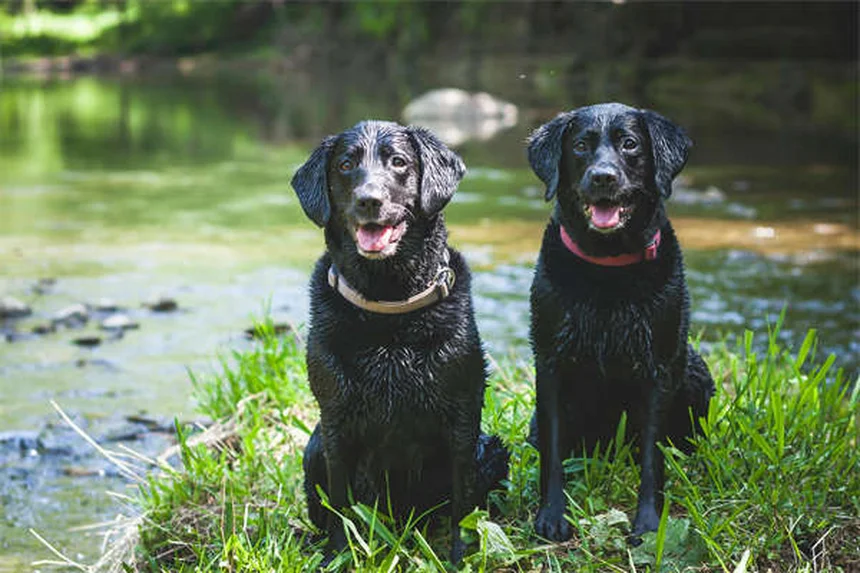Does your ferret have strange itchy bumps? Mast cell tumors in ferrets are actually quite common - and here's the good news: most are completely benign! These skin growths typically appear as small, raised bumps that come and go mysteriously, often driving both pets and owners crazy with itchiness. While they might look alarming, the truth is most ferrets live perfectly happy lives with proper care. In this guide, we'll walk you through everything you need to know - from spotting the first signs to treatment options and daily care tips. Whether you're dealing with your first ferret tumor or just being proactive, we've got your back (and your ferret's skin) covered!
E.g. :10 Common Cat Fears & How to Calm Your Anxious Kitty
You know how we humans get weird skin growths sometimes? Well, our furry friends can too! Mast cell tumors are one of the most common skin issues ferrets face. These tumors start from mast cells - which are actually normal cells that help with immune responses. But when they go rogue and multiply uncontrollably, boom - you've got a tumor situation.
Here's the good news: Most mast cell tumors in ferrets are benign. They typically appear as small, raised bumps around the neck or trunk area. Picture a tiny pinkish bump that might look like a pimple at first glance. The tricky part? These bumps can change size suddenly - one day it's there, the next day it's gone, then it comes back! Talk about playing hide and seek with your vet!
Ever seen your ferret scratching like crazy at a particular spot? That could be a red flag. These tumors often cause:
Fun fact: Did you know ferrets have such thin skin that even minor irritation can look dramatic? That's why these tumors often appear worse than they actually are!
 Photos provided by pixabay
Photos provided by pixabay
When you bring your itchy ferret to the clinic, here's what typically happens:
The vet will first do a physical exam, paying close attention to any skin abnormalities. But since many skin conditions look similar, they'll usually recommend a cytologic examination. This fancy term just means they'll take some cells from the bump (often with a simple needle) to examine under a microscope.
Why is this important? Because mast cells have a distinctive appearance that makes them easy to identify. It's like recognizing your friend in a crowd - these cells have unique features that stand out to trained professionals.
In most cases, the cytology is enough. But if the tumor looks suspicious or behaves unusually, your vet might suggest:
| Test | Purpose | When It's Needed |
|---|---|---|
| Biopsy | Examine tissue structure | If cancer is suspected |
| Blood work | Check overall health | Before surgery |
| Ultrasound | Look for internal spread | Rare cases only |
Remember - most ferret mast cell tumors are straightforward to diagnose. Don't let the list of possible tests scare you!
Here's the deal - surgical removal is usually the best solution. The procedure is typically quick and ferrets recover amazingly fast. I've seen ferrets bouncing around like nothing happened just hours after surgery!
But wait - is surgery always necessary? Actually, no! Some small, non-bothersome tumors might just need monitoring. Your vet will consider factors like:
 Photos provided by pixabay
Photos provided by pixabay
In rare cases where the tumor is aggressive or can't be fully removed, additional treatments might include:
Radiation therapy - Targets remaining cancer cells with precision. Think of it like a laser pointer, but for zapping bad cells!
Chemotherapy - Used only in severe cases. Ferrets generally tolerate it better than humans do, with fewer side effects.
If your ferret has been diagnosed with mast cell tumors, here's how you can help:
First, resist the urge to poke at the tumor! I know it's tempting, but unnecessary touching can irritate it more. Instead:
Most mast cell tumors are more annoying than dangerous. But you should call your vet if you notice:
The tumor grows rapidly, becomes ulcerated, or your ferret seems in pain. Otherwise? Just keep an eye on it and enjoy your time with your playful pet!
Final thought: Ferrets are tough little creatures. With proper care and attention, mast cell tumors are usually just a minor bump in their adventurous lives!
 Photos provided by pixabay
Photos provided by pixabay
While mast cell tumors are common, they're not the only skin problem ferrets face. Adrenal disease often causes hair loss and itchy skin too - sometimes owners mistake it for simple allergies! The key difference? Adrenal issues usually start with symmetrical hair loss near the tail first.
Ever noticed your ferret developing blackheads? Yep, these little guys can get acne too! Their oil glands sometimes go into overdrive, especially during hormone changes. A warm compress and gentle cleaning usually does the trick - no need for fancy treatments unless it gets infected.
You are what you eat - and that goes double for ferrets! These obligate carnivores need high-protein, low-carb diets to maintain healthy skin and coat. Cheap kibble full of fillers? That's like feeding your ferret junk food every meal!
Here's a quick comparison of good vs. bad ingredients:
| Great Choices | Poor Choices |
|---|---|
| Chicken, turkey, lamb | Corn, wheat, soy |
| Animal-based fats | Vegetable oils |
| Limited ingredients | Long ingredient lists |
Notice how the best foods read like a simple meat shopping list? That's what your ferret's body recognizes as real nutrition!
Ever wonder if your ferret understands you're trying to help? Here's the fascinating thing - while they might squirm during vet visits, ferrets are incredibly resilient. I've seen them go from terrified to playful within minutes of returning home!
The secret? Your energy matters more than you think. If you're nervous, they'll pick up on it. Stay calm and upbeat, and offer their favorite treat afterwards. Before you know it, they'll associate checkups with positive experiences!
Now here's a question many owners debate: Is pet insurance worth it for a ferret? Let me break it down for you. Ferrets can develop several expensive conditions as they age - adrenal disease, insulinoma, lymphoma. A single surgery could cost $800-$1500!
But is insurance always the answer? Not necessarily. Consider these factors:
Some owners opt for a "ferret savings account" instead - setting aside money each month specifically for vet bills. Either way, having a financial plan gives you peace of mind when health issues arise.
Young, healthy ferrets should get checkups at least once a year. But after age 3? Bump that up to twice yearly. Why the change? Because ferrets age rapidly - that extra visit could catch problems early when they're easier to treat!
Think of it like changing your car's oil. Skip maintenance, and you might end up with bigger problems down the road. A quick exam and blood work can reveal so much about your ferret's internal health!
Here's where many owners get confused. While dogs need multiple vaccines, ferrets actually only require one core vaccination: rabies. Some vets recommend distemper shots too, depending on your area's risk factors.
But wait - aren't more vaccines better? Actually, no! Ferrets have sensitive systems. Over-vaccinating can cause more harm than good. Your vet will tailor recommendations based on:
When in doubt, ask your vet to explain the risks vs. benefits for your specific situation!
You wouldn't sleep on dirty sheets every night - and neither should your ferret! Their bedding needs weekly washing in mild detergent. Harsh chemicals? Those can irritate sensitive ferret skin faster than you can say "itchy!"
Here's a pro tip: Use old t-shirts or fleece blankets instead of commercial bedding. They're softer, cheaper, and easier to clean. Plus, your scent on the fabric comforts your ferret - it's a win-win!
Dry air equals dry skin - for you and your ferret! Ideal humidity levels hover around 40-60%. Too low? You might notice more dandruff. Too high? Hello, bacteria breeding ground!
Simple solutions include:
Remember, ferrets explore with their noses first. If an odor makes you cough, imagine how it affects their sensitive respiratory systems!
E.g. :Skin Diseases in Ferrets | VCA Animal Hospitals
A: Look for these telltale signs: Mast cell tumors in ferrets typically appear as small, raised pinkish bumps that come and go. They're most common around the neck and trunk area. What makes them unique is their "now you see it, now you don't" behavior - they might disappear completely only to return weeks later. Your ferret will likely scratch or bite at the area excessively because these tumors are notoriously itchy. If the bump bleeds when scratched or develops a scabby appearance, that's another red flag. While only your vet can give a definitive diagnosis, these characteristics strongly suggest a mast cell tumor rather than other skin conditions.
A: Here's the good news we always share with worried ferret parents: About 90% of mast cell tumors in ferrets are benign. Unlike in dogs where these tumors can be more serious, ferrets typically handle them well. The main issues are discomfort from itching and potential secondary infections from scratching. That said, there's always that small percentage (about 10%) that can become problematic. That's why we recommend having any suspicious growth checked by your vet. They'll determine if it's one of those rare aggressive cases needing more than just monitoring.
A: Treatment depends on the tumor's characteristics. Surgical removal is often the simplest solution - it's quick, and ferrets usually bounce back amazingly fast. For small, non-bothersome tumors, we might just recommend watching and waiting. In more complex cases (like tumors in tricky locations), your vet might suggest alternatives like cryotherapy (freezing) or laser treatment. Only in very rare, aggressive cases would we consider radiation or chemotherapy. The key is working with an experienced ferret vet who can tailor the approach to your fuzzy friend's specific needs.
A: Honestly? There's no proven prevention method since we don't fully understand what causes these tumors in ferrets. What we can do is focus on overall health: feed a high-quality diet, maintain regular vet check-ups, and keep stress levels low. Early detection is your best weapon - regularly check your ferret's skin during cuddle sessions. If you spot anything unusual, don't panic (remember, most are harmless!), but do schedule a vet visit. Think of it like we do with human skin - we can't prevent every mole, but we can stay vigilant about changes.
A: Post-op care is surprisingly simple! Ferrets are tough little creatures. You'll want to:
1) Keep the incision site clean and dry
2) Prevent scratching with a soft collar if needed
3) Limit intense play for a few days (good luck with that energetic ball of fur!)
4) Watch for any redness, swelling or discharge
5) Give pain meds if prescribed
The best part? Most ferrets act like nothing happened within hours. Just follow your vet's specific instructions, and your fuzzy friend should be back to normal mischief in no time!
Recommended
10 Common Cat Fears & How to Calm Your Anxious Kitty
Salmonella in Guinea Pigs: 5 Critical Signs & Prevention Tips
Metritis in Chinchillas: 5 Warning Signs Every Owner Must Know
5 Best Independent Cat Breeds for Busy Pet Parents
Polycystic Disease in Hamsters: Symptoms, Treatment & Prevention